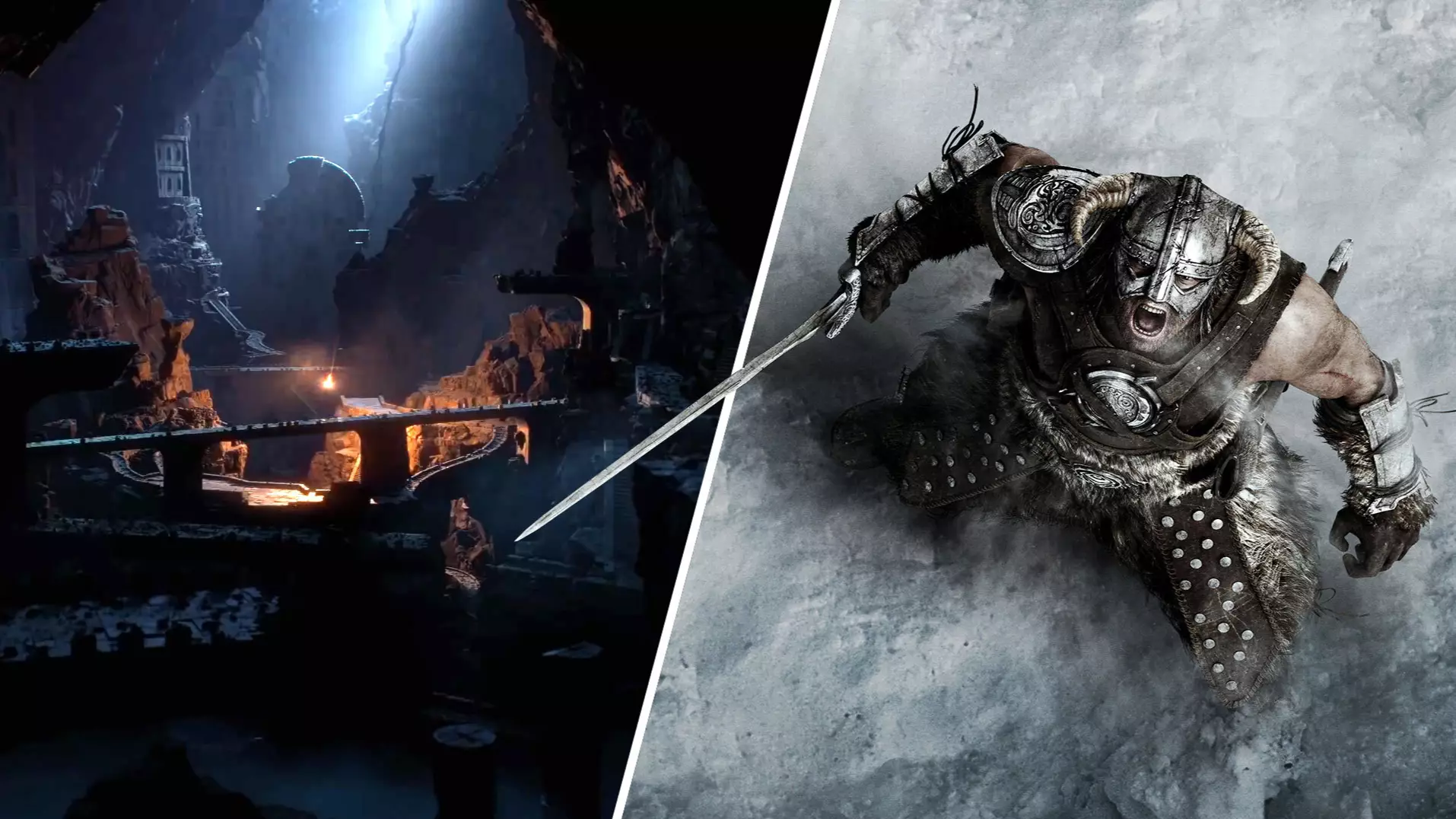
Words: Jeremy Peel
An arrow points the way. Fired from a bow high on a castle wall, the projectile arcs through grey cloud, flame rolling around its shaft, before punching through the chest of its target, a skeleton warrior half a mile away.
That's the image with which Obsidian Entertainment chose to begin the public life of Avowed, its next RPG. The studio told us little else about the game - only that it'll be epic, first-person, and backed by first-party funding from Xbox. But that was enough. Obsidian, and everyone else, knew exactly what the company's target was: Skyrim.
Advert
It could have been very different. In fact, Obsidian's relationship with first-person RPGs started a decade ago at the behest of Bethesda, the maker of Skyrim and the 2011 RPG's parent series, The Elder Scrolls.
Unlike, say, Ubisoft, Bethesda had kept its flagship internal studio small - even after Fallout 3, its development team was yet to top 100 people. That meant it could concentrate only on one game at a time, and while Bethesda Game Studios worked on what would become Skyrim, the Fallout series was lying fallow.
As such, Bethesda decided to commission a stopgap Fallout game, and decided that Obsidian would be the studio to make it. The choice made sense: outside Bethesda, nobody knew the Fallout universe better than the staff at Obsidian, many of whom had worked on the original 1990s Fallout games back at Black Isle Studios.
Advert
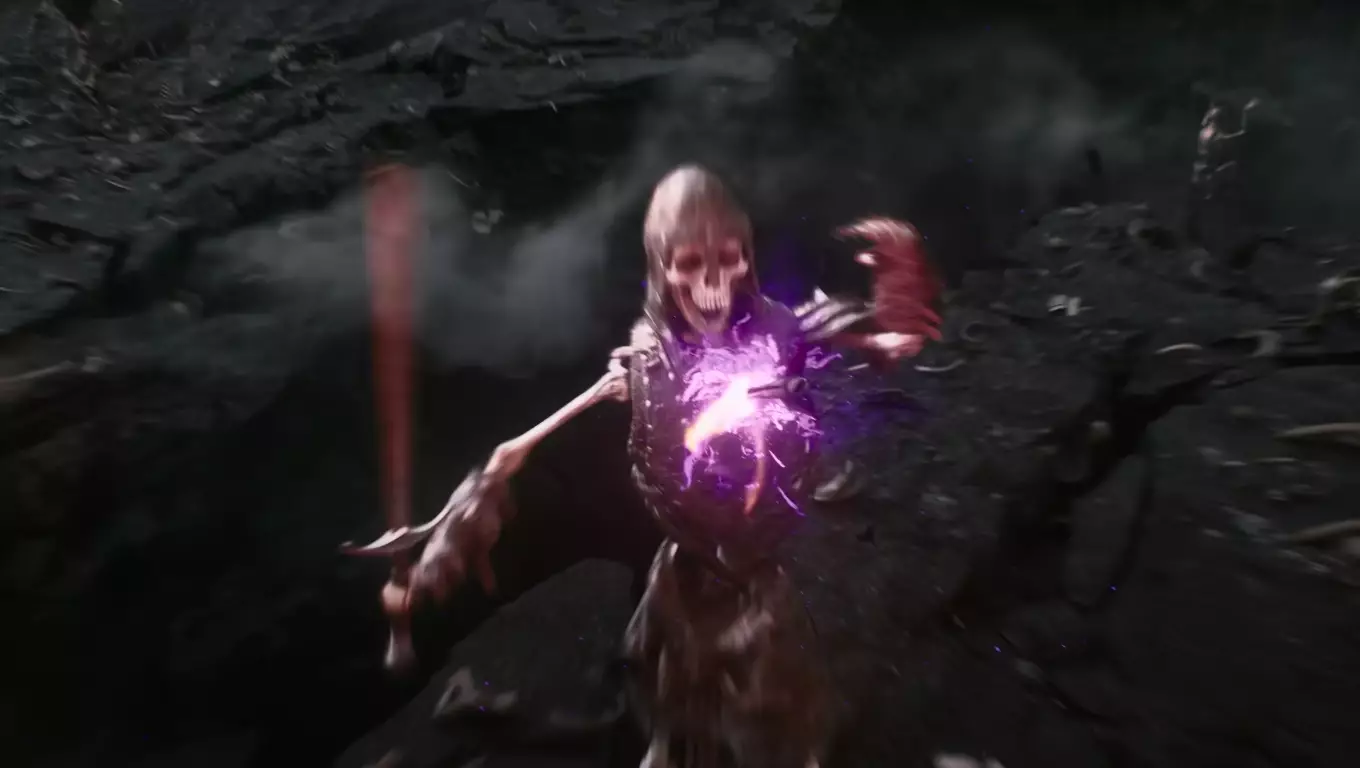
But the Obsidian team had little experience with a first-person engine like that of Fallout 3, and was given a tight deadline. The result was 2010's Fallout: New Vegas - a game derided on release for its many bugs, which wound up with a Metacritic average several points lower than Bethesda's own effort. Famously, Obsidian missed out on a bonus by a single percentage point - a blow for a company then surviving project-to-project.
Of course, that isn't the whole story. In the years after its launch, New Vegas became a totem for advocates of reactive RPGs. Fans liked to compare the comparative stricture of Bethesda's own worlds to the choice-driven story and complex faction relationships of New Vegas. Public goodwill for a potential sequel began to build, and Obsidian publicly supported the idea. "We talk about it all the time," CEO Feargus Urquhart told Kotaku in 2012. "I think a Fallout: New Vegas 2 would kick ass."
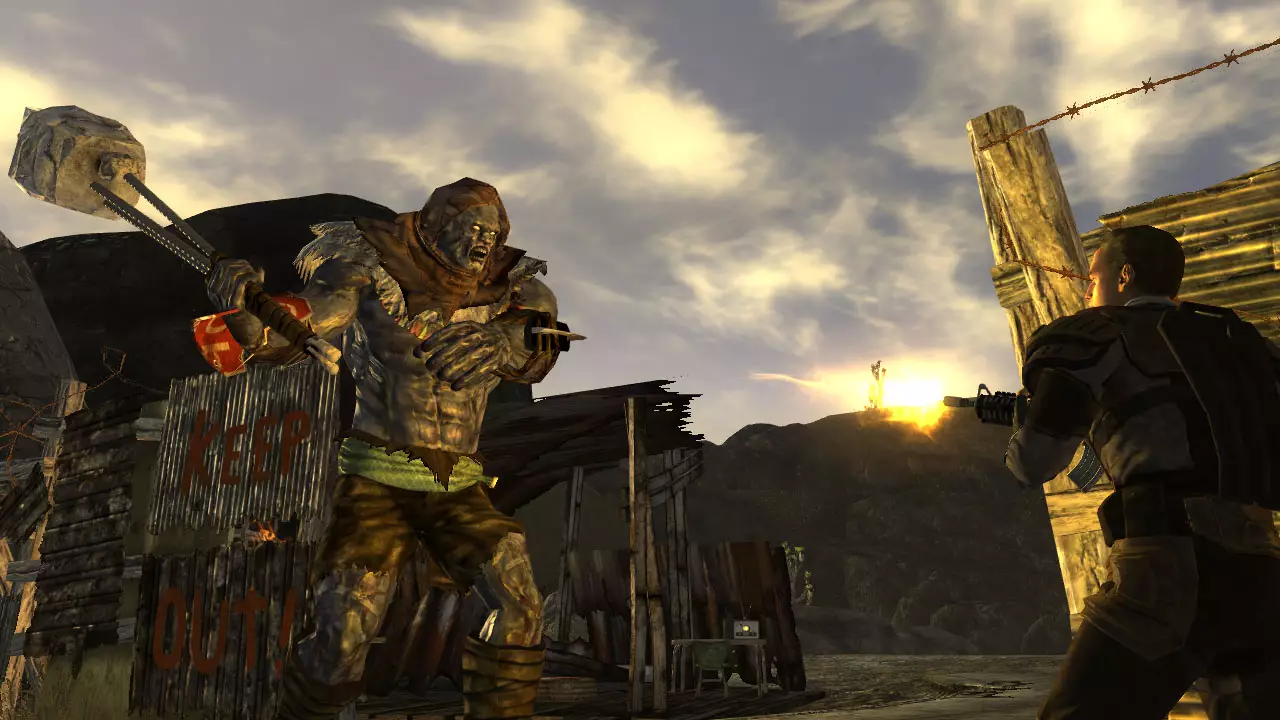
Advert
New Vegas director Josh Sawyer was still fielding questions about the game several years later. "I know there are tons of people at Obsidian who would love to work on a Fallout game again," he told IGN in 2017. "If we were given the chance, we would certainly love to."
But Bethesda never did give Obsidian that chance. In the decade since New Vegas, its own studios have grown, giving the company the capacity to work on multiple games simultaneously. "Now that our company is so big," Bethesda director Todd Howard told The Guardian in 2018, "it's always better to keep stuff internal."
And so, seemingly, Obsidian got tired of waiting. With the help of a different publisher, Private Division, it built a spiritual successor to New Vegas named The Outer Worlds. Though it couldn't match Fallout for sheer scale, Obsidian went hard on alternative pathways, supporting as many routes through the game's space stations and planetary toothpaste research outposts as it could.
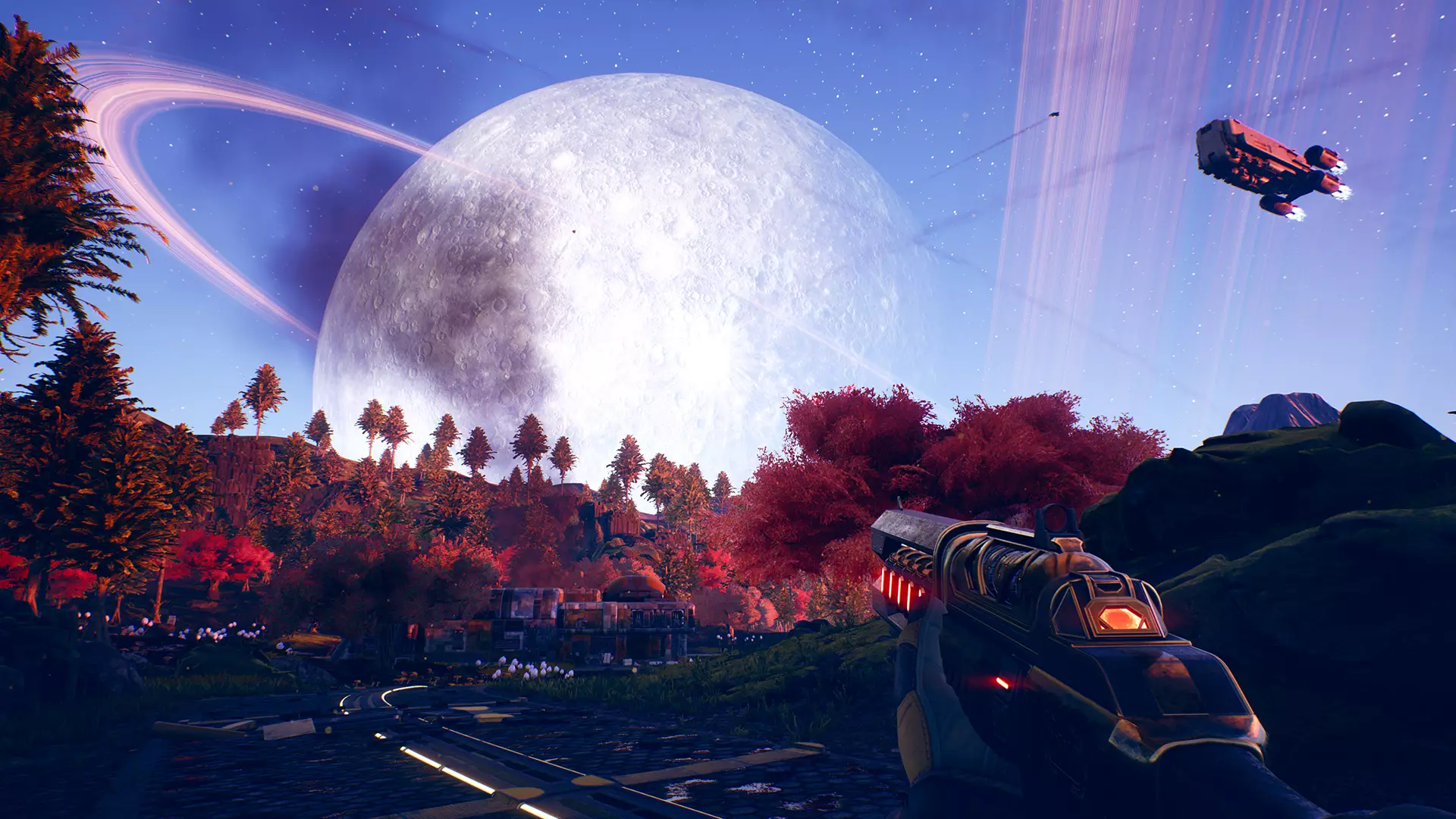
Advert
In my own playthrough of The Outer Worlds, I doggedly pursued the arrest of Phineas Welles, the fugitive who risks his life to save you from eternal cryosleep at the beginning of the game. I eventually succeeded, almost literally flipping the script of the game's planned plot - a kind of reactivity rarely seen even in RPGs.
Obsidian has never courted growing public dissatisfaction with the direction of the Fallout series under Bethesda. But it has benefitted from it. The Outer Worlds arrived in the aftermath of Fallout 76, a game that - initially, at least - sacrificed deep interaction with a living world full of NPCs in order to support online multiplayer. In that context, Obsidian's offer of a truly malleable story, directed by developers who had shaped Fallout back when it was isometric, was timely and tempting.
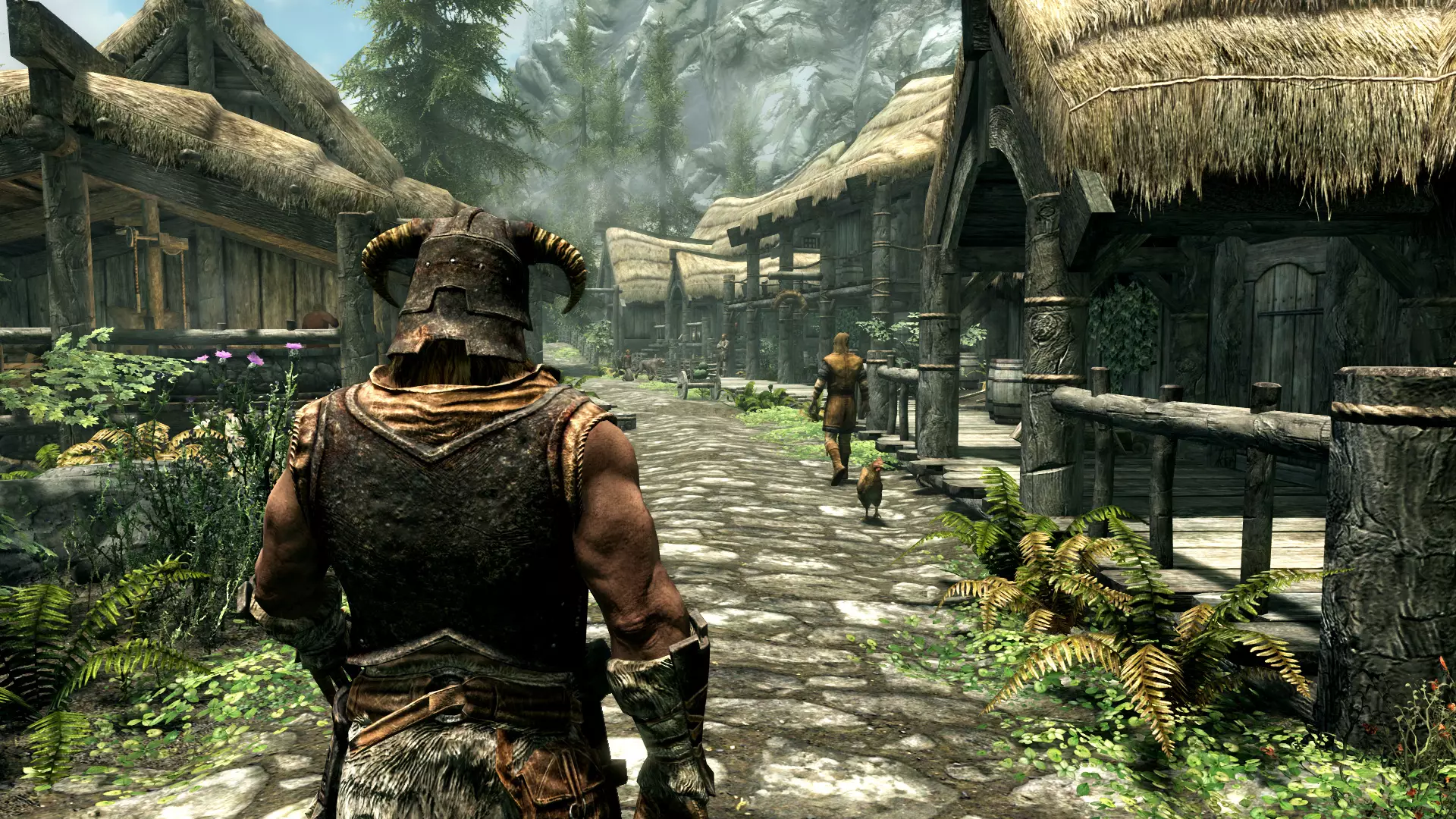
Now that Obsidian is an Xbox studio, Microsoft hopes that The Outer Worlds can be an "enduring franchise". Avowed, then, is a way to repeat the trick: to create a game that feeds on appetite for The Elder Scrolls, the way The Outer Worlds does with Fallout.
Advert
It's not going to be so easy. Though nearly nine years old, Skyrim casts a favourable shadow over The Elder Scrolls series. It managed to marshal both Morrowind diehards and Oblivion converts, and as such the next, sixth entry in the series has a ready and eager audience. One not necessarily looking for anything else.
That said, The Elder Scrolls 6 is still a long way off - set for full production after Bethesda Games Studios' next project, Starfield, is wrapped (and we're not expecting any news on that game until 2021) - and Obsidian has a unique head start. Avowed isn't set in a new fantasy world, but Eora, the same place Pillars of Eternity players have been kicking about for years now.
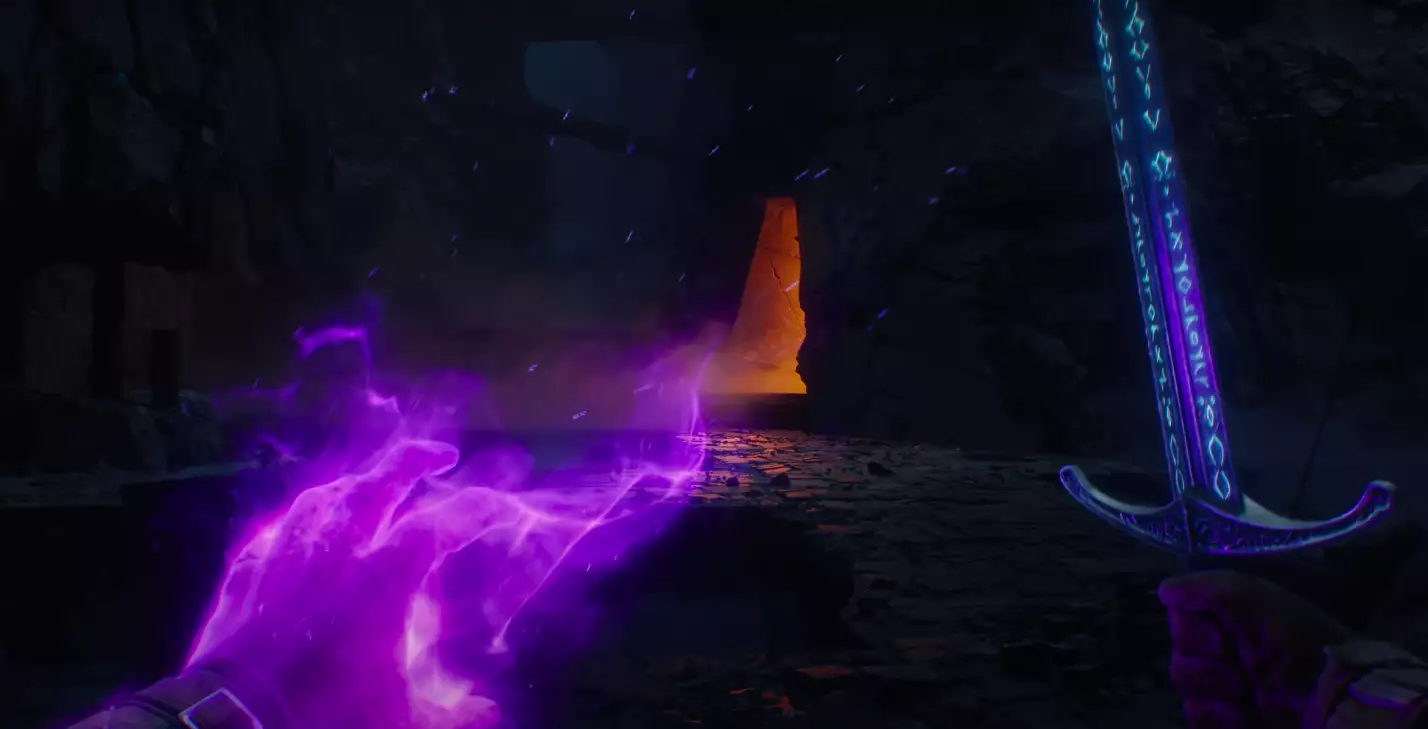
The last Pillars game, 2018's Pillars of Eternity II: Deadfire, was critically acclaimed but sold poorly. "If we consider making another Pillars game in this style, we're going to have to re-examine the entire format of the game," director Sawyer told a fan last year. "It is difficult to know exactly why a sequel sells worse than its predecessor if both games review relatively well. The problem is that without really understanding the reason(s), it's hard to know how to move forward."
It would appear that Microsoft's acquisition has given Obsidian its route forward: a much more expensive game that it could possibly have made as an independent studio. With Avowed it gets to bank the worldbuilding of Pillars and channel it into a first-person RPG with the potential for a much wider audience.
That's all we're dealing in right now: potential. But you'd be wise to watch this space, and you can bet Bethesda is, too. Perhaps a little remorsefully - wondering whether this all could have been avoided if only it had asked for another New Vegas.
Avowed is set to be released for Xbox Series X and Windows 10 PCs, most likely in late 2022 or early 2023, and will also come to Game Pass. Follow the author on Twitter at @jeremy_peel, and GAMINGbible at @GAMINGbible.
Featured Image Credit: Xbox Game Studios, Bethesda SoftworksTopics: Xbox, Feature, Obsidian Entertainment, The Elder Scrolls 6, The Elder Scrolls, Xbox Series X, Skyrim, Opinion, Fallout, Bethesda